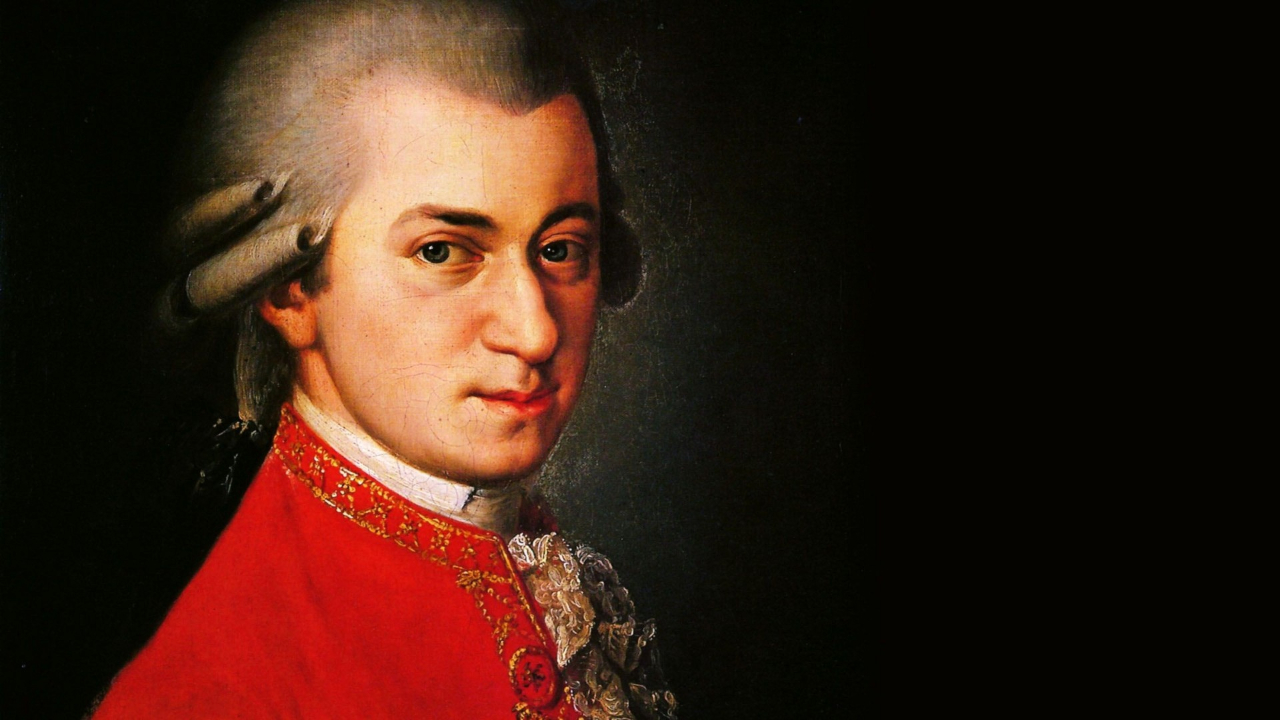Wolfgang Amadeus Mozart, often simply referred to as Mozart, stands as one of the most influential and prolific composers in the history of Western classical music. Born on January 27, 1756, in Salzburg, Austria, he was baptized as Johannes Chrysostomus Wolfgangus Theophilus Mozart, though he later adopted the Latin form of his name, Amadeus, meaning “beloved of God.”
Mozart was born into a musically gifted family. His father, Leopold Mozart, was a respected composer, violinist, and music teacher, and he recognized his son’s prodigious talents at an early age. Under Leopold’s guidance, Mozart began composing music by the age of five and was already proficient on the keyboard and violin.
By the time Mozart was six, he was performing for European royalty and aristocracy, captivating audiences with his extraordinary musical abilities. His precocious talent became the talk of the continent, and he embarked on extensive tours across Europe with his family, showcasing his prowess as both a performer and composer.
At the age of 14, Mozart was appointed as a court musician in Salzburg by the Archbishop Colloredo. However, his ambitions reached far beyond the confines of his hometown, and he yearned for greater opportunities to showcase his talents. Despite his dissatisfaction with his position, Mozart continued to compose prolifically during this period, producing symphonies, operas, chamber music, and sacred works.
In 1781, Mozart left Salzburg and settled in Vienna, the musical capital of Europe at the time. There, he found greater artistic freedom and flourished as a composer, pianist, and conductor. His compositions during this period include some of his most iconic works, such as the operas “The Marriage of Figaro,” “Don Giovanni,” and “The Magic Flute,” as well as his famous piano concertos, symphonies, and chamber music.
Despite his musical genius, Mozart faced financial struggles throughout his life, often living beyond his means and relying on commissions and patronage to sustain himself. His lavish lifestyle and inability to manage his finances effectively contributed to his financial difficulties.
Tragically, Mozart’s life was cut short at the young age of 35. He died on December 5, 1791, under mysterious circumstances, leaving behind a vast and unparalleled musical legacy. His death sparked speculation and controversy, with theories ranging from poisoning to kidney failure. However, the exact cause of his death remains uncertain to this day.
Mozart’s music continues to captivate audiences worldwide with its beauty, complexity, and emotional depth. His unparalleled mastery of melody, harmony, and form revolutionized classical music and left an indelible mark on the genre. From the timeless beauty of his operas to the sublime elegance of his symphonies and concertos, Mozart’s music remains as vibrant and enchanting today as it was during his lifetime. Truly, he is and will always be remembered as one of the greatest composers in the history of music.


Comments are closed